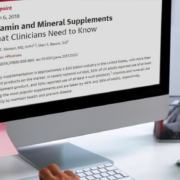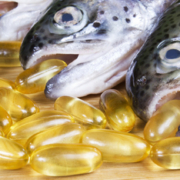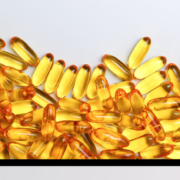Questions About Fish Oil
While I’m spending the day making sure today’s primary election in Michigan goes smoothly in my precinct, here are some of my thoughts and questions about fish oil and omega-3 fatty acids.
- None of the research to date has focused on complete nutrient intake, and that may have an impact on fish oil utilization. I’ve suggested that before, but vitamins, minerals, and especially phytonutrients from food may have a role to play in how the body uses fish oil and all the fatty acids within it.
- Speaking of the fatty acids, the omega-3s that are always mentioned are EPA and DHA. In reality, they make up a small part of the fatty acid distribution in fish oil. Could that make a difference? In other words, would the emphasis on those fatty acids impact how omega-3s are used in the body, positively or negatively, compared with straight fish oil?
- The form of the omega-3 may be important when it comes to bioavailability. There are phospholipids, re-esterified triglyceride (rTG), TG, free fatty acids (FFAs), and ethyl-ester forms of omega-3s. Does the form matter?
- This is just my opinion, but there’s something in fish that works to improve absorption of omega-3s. Maybe it’s the other fatty acids or maybe it’s the protein in the fish when we eat it. There’s no evidence that oily fish intake increases AFib, so why would the oils alone contribute to any issue unless something is impacting the form mentioned above?
That’s the way I see it. It’s also why I think eating a good diet will prove to be beneficial when taking fish oil. We’ll just have to wait and see.
What are you prepared to do today? If you’re in Michigan, I hope you’re prepared to go vote.









